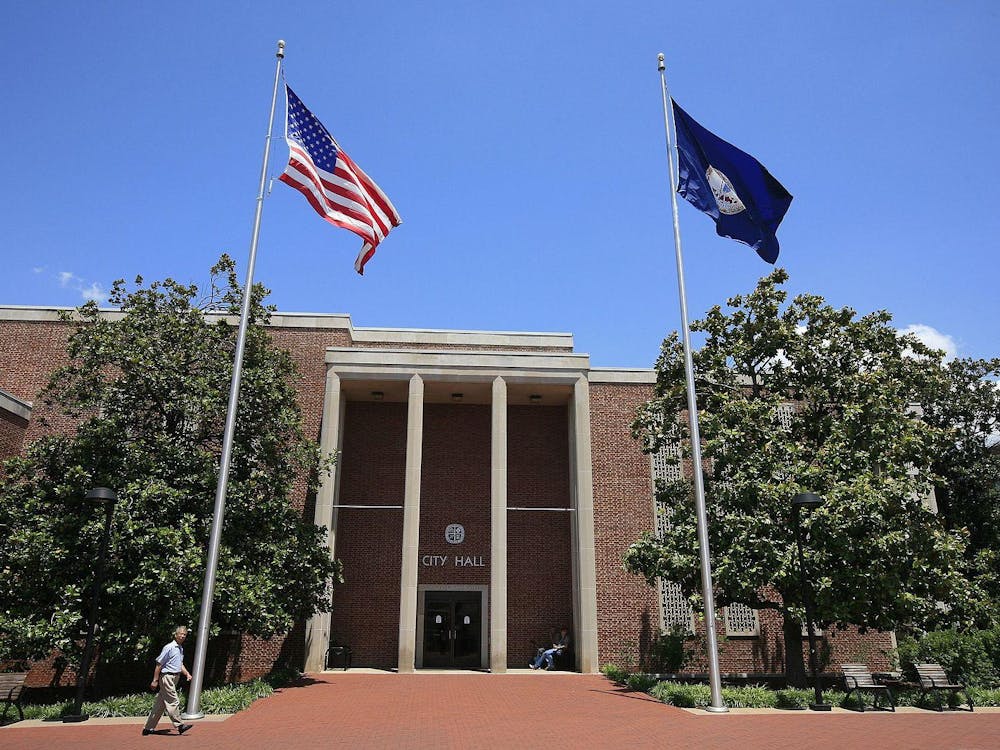Laughing gas is no laughing matter. Despite its clear dangers, nitrous oxide could be freely purchased on the Corner to customers of any age — making it easier for University students to buy a dose than a head of cabbage. Still-evolving research surrounding laughing gas, also known as “whippets,” already shows the substance’s harmful and even lethal effects. Responding to mounting awareness of this fact, lawmakers in Richmond have finally rallied to stamp out this growing public health issue. The result? An ineffective piece of legislation reminiscent of the war on drugs, which, likewise, errantly frames criminalization as the infallible solution to addiction. Signed recently by Governor Youngkin, this bill’s simple ban on nitrous oxide is an approach that has been tried before — and one that continues to fail. What is required instead is an approach that addresses the underlying issues contributing to harmful substance use in the first place.
The actions taken by the General Assembly can likely be attributed to the pernicious health risks of using nitrous oxide. Heavy use of the drug has been linked to permanent damage to the body’s nervous system and abnormalities in the chemical composition of the blood. In addition to this, nitrous oxide’s psychoactive and dissociative effects have already made headlines in the other states such as Louisiana and Florida, where multiple deaths have been attributed to the ever-popular drug. And yet, despite these risks, nitrous oxide has experienced a recent surge in popularity, especially among young people. This drug’s recent and concerning rise in popularity can be attributed to both its virality on social media and the nefarious advertising techniques which display it as a quick and playful high. This increasing popularity, coupled with the serious health concerns, make this drug a troubling prospect for public health in Virginia, especially for young people.
The Virginia legislature thus has correctly identified that this is a public health crisis. Its response to this public health crisis, however, leaves much to be desired. The bill’s first provision simply adds nitrous oxide to the list of substances that are illegal “deliberately to smell or inhale… with the intent to become intoxicated” under the Code of Virginia. Even if the law were to be somehow enforced, the outright banning of harmful drugs has proven disastrous in the past. Throwing those who use drugs in jail has never prevented drug use in communities, and it never will — despite the fact that Virginia already incarcerates more of its citizens per capita than all but two countries in the world, overdose deaths have increased threefold in the last decade. Whether it is opening a black market to even more harmful products or an enforcement mechanism that discriminates against the marginalized, there is no reason to believe that this new law would not fail in the same way as countless drug bans before it.
What has proven to be the most effective strategy in tackling substance abuse, particularly among young people, is prevention. Resistance skills training programs, which pinpoint circumstances in which peer pressure towards drug usage may occur, and normative education initiatives, which endeavor to reeducate youth about the actual, lower rates of usage in social circles, can be useful measures to prevent drug usage from spiralling. By first addressing the underlying social ills that are often predictors of harmful substance use, the personal and community harms of nitrous oxide are reduced from the very start.
Nitrous oxide abuse is usually the result of long-term influences rather than sudden impulse, and many who fall into it are affected by a number of common factors, practically none of which can be adequately addressed as simple criminal justice issues. It is unacceptable, therefore, that the General Assembly recently implemented a law to treat those who use nitrous oxide as Class 1 misdemeanants — the same category as domestic abusers — who face up to a year in jail if convicted. A prevention-based approach offers a long-term path towards addressing addiction that a punishment-based approach is simply incapable of following.
Addressing the social factors to prevent nitrous oxide use must go hand-in-hand with increasing public knowledge about the drug and its effects. Even in places most impacted, knowledge of the substance and its effects remain staggeringly low. Virginia could adopt a rigorous awareness campaign, perhaps by leveraging the same sort of online interactions that contributed to its rise in the first place. Recent studies have suggested that a system of peer-to-peer advocacy, whereby young people are tasked with communicating the medically known risks of drug abuse to their peers, has been effective in reducing substance use intentions among high schoolers. Striking this balance between scientific authority and familiarity is a proven approach that lawmakers should consider.
A prevention-based and education-based approach can and should be implemented alongside sensible, focused regulation. Canisters so large that they have no legitimate use could be banned for consumer purchase, simultaneously curbing nitrous oxide use while protecting those who want to use it legitimately. Virginia should also crack down on selling nitrous oxide canisters with flavors and packaging designs appealing to the youth. These focused regulations can directly lower recreational nitrous oxide use without the costly, problematic and largely ineffective enforcement of blanket bans.
The lawmakers in Richmond might argue that a basic prohibition is a step in the right direction. But this only deludes people into thinking that something meaningful is actually being done. As people continue to be harmed by nitrous oxide abuse, Virginians will see this new law as the ineffective, ultimately harmful policy that it is.
Viet Huynh is an opinion columnist who writes about student self-governance for The Cavalier Daily. He can be reached at opinion@cavalierdaily.com.
The opinions expressed in this column are not necessarily those of The Cavalier Daily. Columns represent the views of the authors alone.







